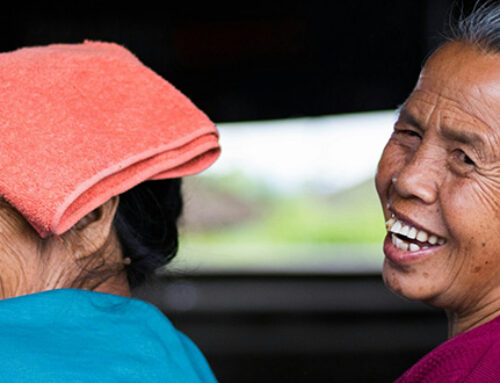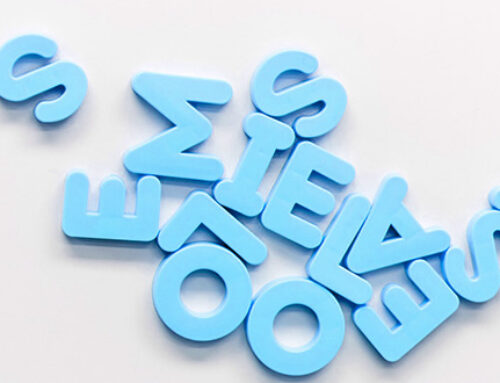The value of women in Islam is a topic that one cannot attempt to discuss without knowledge of the Islamic theological underpinnings regarding gender, as depicted in the Quran. Muhammed’s engagement with women undergirds the descriptions of women in the Quran as inferior beings. The oppressive treatment of women was nothing new when Jesus was born around 570 years before Mohammed. Although Christ’s main mission was not to change cultural systems in favor of women, his engagement with women was vastly different than the norm at the time. In this paper, I will explore the issue of the devaluation of women through the eyes of Allah, as opposed to Christ’s recognition of women as valuable and dignified human beings, demonstrating two prominent theologies as being worlds apart. This paper may serve as a foundation for further evangelical engagement with Muslim women from a Christan woman’s perspective regarding spiritual liberation and restoration within the African context.
A Muslim background
Muslim conviction, in general, accepts that women are not equal to men since males are God’s primary creation, and females are exclusively responsible for man’s fall. Women were created from men for men (Bux 2004, 42). It is, therefore, not surprising that Muslim feminists question Islamic sources, their interpretations, and the equality of men and women in the Quran (p. 40). Wadud-Muhsin (1999, 54) suggests that social systems are responsible for the idea of men being superior to women and not Islam. There have been attempts to challenge these ‘social systems, resulting in discourses between conservatives and Islamists since the 1970s (p. 81). Although modern critics have rewritten the superiority claims of men over women in a more palatable manner (Izadi 2020, 354), it doesn’t change the fundamental beliefs in Islam around women being inferior beings with no rights to protection against male dominance and abuse. Waddud-Muhsin (1999, 48–49) argues that male dominance and superiority over women is a matter of interpretation and that women are equal to men according to the creation account in the Quran, but this view is not shared by the majority of Muslims. Despite feminist actions to liberate Muslim women all over the world, including South Africa, women within the Muslim community where Muslim laws are upheld are not free to fulfill a dynamic role in public life (2004, 80).
Through the eyes of Allah
The following descriptions depict Allah’s perspective on the value of women as created beings, their integrity, human rights, and worth as members of the ‘House of Islam’ and society. These perceptions are part of Islam and are deemed valid in the exercising of faith and obedience to Allah.
Women are inferior
Allah does not introduce himself to man in the Quran but remains mysterious, unknown, and disconnected from his creation (Schirrmacher and Baldwin 2008, 25). Any kind of personal interest in mankind, or friendship with man, is viewed as blasphemy (p. 31). It is, therefore, unthinkable that Allah would be concerned about women as individuals and their position in society. Irrespective of initiatives to promote Muslim women’s roles and esteem in public society, the undisputed truth remains: women are not positively regarded by Allah. Allah did not even bother to name Adam’s wife (p. 37), which collaborates with Allah’s devaluation of women, deeming them inferior (Anderson 2016, 86, 89). Women reflect human weakness and disability as inferior intellect compared to men (Q. 2:228; 4:5) because men were Allah’s original creations (Izadi 2020, 345). As Allah’s initially preferred creations, men will more likely to enter heaven than women due to women’s ungrateful nature (Sahih Bukhari 1, Book 2). The views on women as inferior beings are supported by traditional exegesis of the Quran’s depiction of women (2020, 349–50).
Women are suspect (guilty)
Due to women being inferior created beings, women are not viewed as reliable witnesses by Allah (Q. 2:282). Muslim theologians argue that women are emotionally unstable and therefore do not possess the ability to reason, making them untrustworthy (Schirrmacher, McClary, and Johnson 2013, 30–31). As Allah took away the woman’s intellectual capacity as punishment for leading Adam into sin (Wadud 1999, 34), it is no wonder that women are viewed with suspicion and considered animalistic and inferior to men (Bauer 2015, 101).
Women are possessions
Allah created women to be possessions of men, physically and sexually, to be used as men please (Sahih Muslim, Book 12; Spencer 2009, 138–39; Q. 2:223). Women have no choice when a man decides to marry her or possess her as a slave (Q. 4:3), even as young pre-pubescent girls (p. 139). Women have no choice in the matter of divorce either (Q. 2:228) (pp. 141–42). When it comes to the argument of women’s rights in Islam, some Muslim scholars state that archaic views on women’s rights have been reviewed (Izadi 2020, 348). My question in response to this statement is: if Muslims view Allah’s revelation as the only revelation with authority for all eternity (Schirrmacher and Baldwin 2008, 8–9), how did they succeed in changing Allah’s mind on the status of women as depicted in the Quran, allowing the scholars to change how women’s rights should be ‘interpreted’, especially since Allah would not engage in conversation with a man about his word (Q. 6:115)?
Allah supports the possession of women as sex slaves (Q. 33:25)— this is confirmed by Mohammed’s example of owning his own female sex slaves (Ishaq 693; Warner 2010), as well as using female slaves for sexual pleasure together with his chief lieutenants after military conquests (Ibid 496; 539). There is no protection for women against being treated as sex objects in the Quran. Muslims are ordered to conduct their lives according to Mohammed’s ‘excellent’ example (Q. 33:21). Mohammed’s conduct is not questioned or opposed because he is Allah’s messenger, the ‘slave of Allah’ (2010), who can do no wrong in the eyes of Muslims. Allah’s view of women as mere possessions, as well as Muhammed’s conduct towards defenseless women, confirm the low stance of women in Islam. Even in the afterlife, women will serve men and are subject to their pleasure (Sunan Vol. 4, Ch. 21; Q. 55:54–56; 56:12–40; 76:12–22).
Women are invisible
As we progress from women being viewed as inferior beings and untrustworthy to being possessions subject to male dominance, it is evident that Muslim women are ‘invisible’ to the god they serve. Allah displays no compassion regarding protecting vulnerable women, female slaves, or young girls. Allah does not defend women against abuse but rather recommends that women cover themselves with garments so that they are not molested (Q. 33:59), implying that being mistreated is their own fault. Being covered up seems to be in the best interest of women, but being ‘invisible’ in this sense is no guarantee that they are spared abuse (Thumbran 2022). It seems like the veil (Hijab) is a public, visible confirmation of how women are viewed and treated in Islam: being allowed to breathe and used for the advantage of men but never heard as legitimate human beings. Allah instructs men to punish and beat their wives as they see ft (Q. 4:34), and exercise dominion over them (Q. 2:223, 228). Women are not allowed to contest abuse in or outside of marriage (Schirrmacher 2008, 93), which further isolates Muslim women, silencing them—the more covered they are, the more the abuse, which no one knows about (2022).
Short Biography: Idalette ([email protected]) is a part-time co-lecturer at SATS in the Christian Counselling courses; she completed the Higher Certificate in Christian Counseling at SATS in January 2020 with distinction. She earned a degree in music (BMus (Ed), 1992) and honors in Educational Psychology (1993) at TUKS. As a part-time counselor with survivors of human trafficking and sexual exploitation, she is interested in effectively applying music- and art therapeutic techniques in trauma counseling, she is also a motivational speaker, writer, and spokesperson for Human Trafficking Awareness. She is married to Andrew, and they have three children and live in Centurion.




